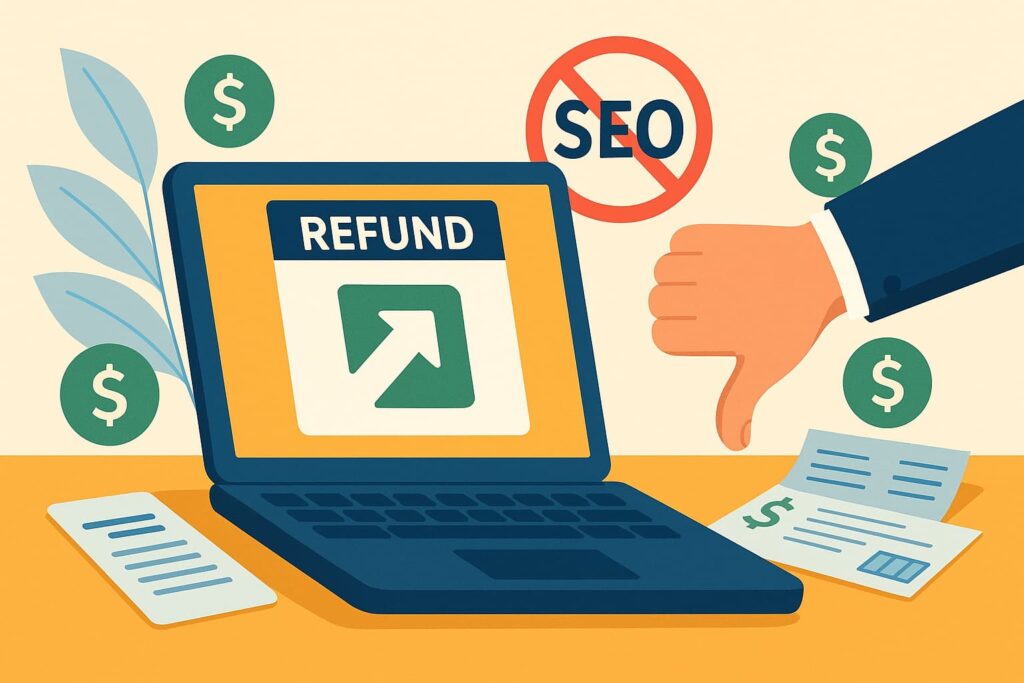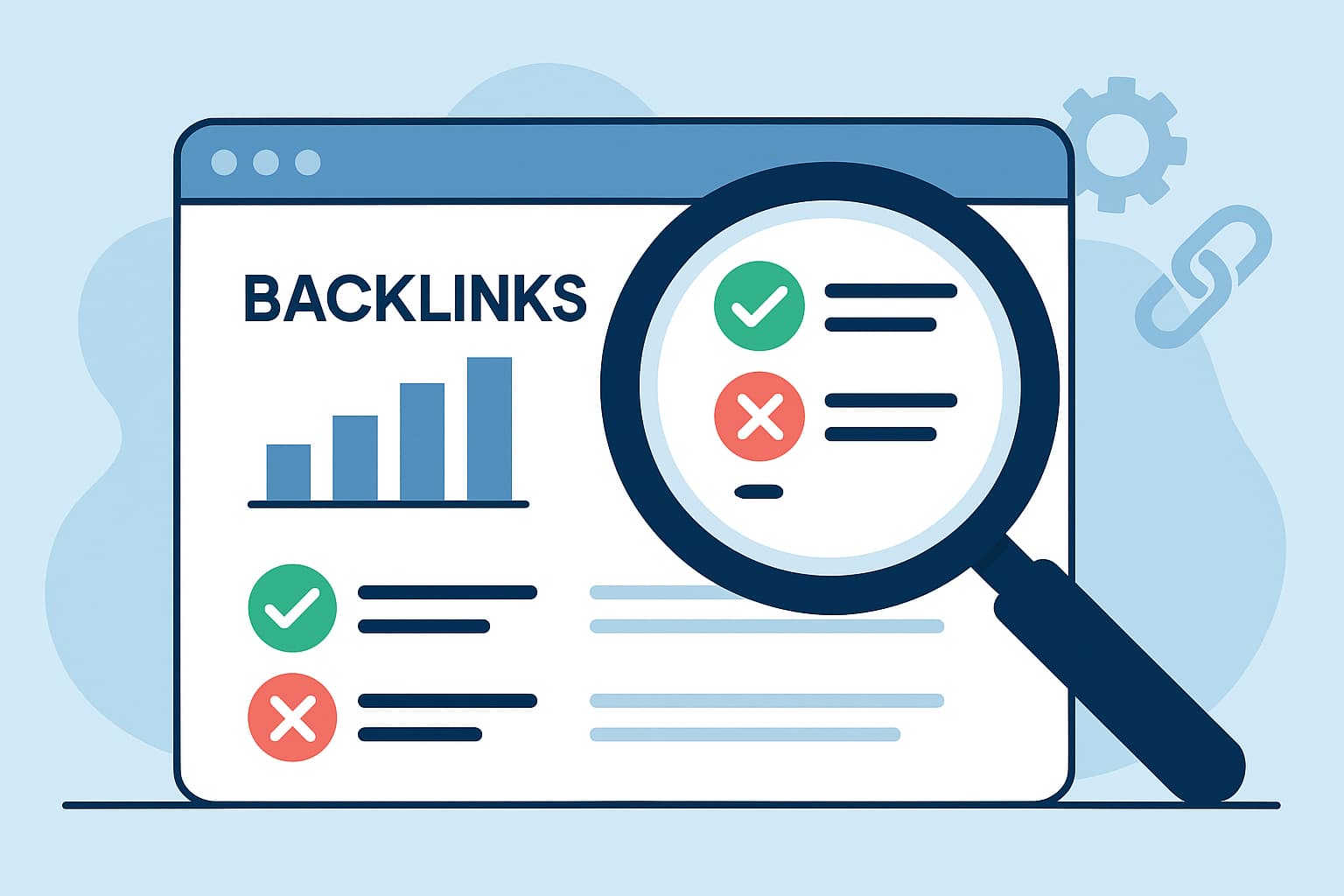Link building works for SEO, but it’s risky. Good backlinks help your rankings — bad ones can get you penalized by Google. The catch? Lots of services promise “guaranteed results,” but many can’t deliver.
Here’s what to look for in a legit link building service so you don’t end up wasting money on strategies that don’t work (or worse, damage your site).
Why the Quality of Your Link Building Service Matters
Not all backlinks help your SEO—in fact, bad ones can actively hurt your site. Google rewards links from high-authority, relevant websites that grow naturally over time. Choosing the wrong link-building service can lead to serious problems:
- Lower rankings (from Google penalties).
- Wasted money (on links that don’t improve SEO).
- Reputation damage (from association with spammy sites).
Here’s the golden rule: A handful of strong, high-quality backlinks from trusted sources will always outperform hundreds of weak, sketchy links that could get your site flagged.
A reliable link building provider understands this. They concentrate on securing placements that meet Google’s standards—no risky tricks or quick fixes. This approach builds your backlinks safely, improving your rankings without endangering your site.
Key Signs of a Trustworthy Link Building Provider
When examining possible link-building services, it’s critical to go past flashy claims and check their real methods. The top suppliers distinguish themselves via transparency, ethical procedures, and proven results—here’s what’s really important when analyzing their credibility:
1. Transparency in Their Process
A reputable provider will:
- Explain their link acquisition methods (such as guest posts, niche edits, or HARO placements) in straightforward terms.
- Show you real examples of where your links will be placed (only on legitimate, authoritative sites — never on PBNs).
- Walk you through how they select and verify websites for your backlinks.
2. Focus on Quality Over Quantity
Avoid services offering hundreds of links for cheap—Google penalizes low-quality links. Look for providers prioritizing domain authority (DA), relevance, and editorial standards. The best services will turn down opportunities that don’t meet strict quality criteria rather than chasing volume.
3. Case Studies & Real Results
Check for documented success stories. Ask for sample placements or past client references — any legitimate provider should be able to showcase their work with concrete examples and verifiable results.
4. Natural Anchor Text Diversity
Good SEO providers mix up their anchor text naturally. Instead of stuffing the same keyword phrase everywhere (like “best shoes in NYC” over and over), they use:
- Brand names (“Nike”).
- Generic phrases (“click here”).
- Natural variations that real websites would use.
This makes your backlinks look more organic to search engines.
5. White-Hat Techniques Only
Avoid private blog networks (PBNs), link farms, and low-quality directory submissions. Following Google’s Webmaster Guidelines is a must—if a provider tries to push shady or “gray hat” tactics, steer clear. These risky strategies can harm your site’s rankings.
6. Clear Pricing & Refund Policies
Avoid providers with vague pricing or unrealistic guarantees. Reputable organizations have open pricing structures and will issue refunds if deliverables are not fulfilled; this demonstrates that they stand behind their work and operate with integrity.
Warning Signs of a Bad SEO Service

Using the wrong SEO or link-building service might cause more harm than benefit. While some companies produce real results, others use questionable tactics that may harm your rankings. Here are the most important warning indicators to watch for:
“We Guarantee #1 Rankings”
If a company promises top spots, walk away immediately. SEO doesn’t work that way — rankings fluctuate constantly based on algorithm updates, competition, and content quality. No legitimate provider can make this guarantee.
They Won’t Show You the Data
A reputable SEO company will gladly share where they’re getting your backlinks from, including domain authority and traffic data. If a provider avoids giving you this information or gives vague responses, that’s a red flag—they likely aren’t using ethical, effective methods.
Unrealistically Low Prices
Quality backlinks come from real outreach and relationship-building with publishers. If a service offers hundreds of links for pennies each, they’re almost certainly using dangerous shortcuts like private blog networks or automated spam links that Google penalizes.
Where to Research Providers
Before hiring, check:
- Reddit & SEO forums (Real user feedback).
- Trustpilot & Google Reviews (Watch for fake reviews).
- Case studies (Do they show real results?).
- Portfolio of links (Ask for recent placements).
This Reddit thread discussing real success (and failure) stories with link-building services reveals which providers are actually delivering results, based on insights from experienced users.
Questions to Ask Before Hiring
Choosing the correct SEO firm is one of the most critical decisions for your website’s success. You require a partner who employs ethical, established tactics and can produce tangible outcomes. Before signing any contract, ask these important questions:
1. “Can you show me examples of links you’ve built for similar clients?”
A reputable agency should happily share their work. Look for links from authoritative, relevant websites, not low-quality directories or spammy blogs. If they are evasive or unable to offer instances, consider this a huge warning indicator.
2. “What measurable results have you achieved for clients?”
Any competent SEO provider should have detailed case studies showing:
- Improved keyword rankings,
- Growth in organic traffic,
- Increases in domain authority.
Be wary of vague claims like “we improved SEO” without concrete data.
3. “How do you handle links if a site gets penalized?”
Good providers monitor their placements and should offer to remove or replace risky links. If they don’t have a plan for this, your site could be in danger.
4. “What happens if you don’t deliver the agreed-upon links?”
Legitimate companies stand behind their work with:
- Written guarantees,
- Replacement link policies,
- Refund options when appropriate.
Get all promises in writing before starting.
Why These Questions Matter

Asking these questions before hiring an SEO agency will help you:
- Weed out sketchy companies.
- Find a legit, professional team.
- Keep your search rankings safe.
- Make sure you’re actually getting what you pay for.
If an agency dodges questions or gives vague answers, walk away. Your website is too important to risk with unprofessional providers.
You should carefully select who handles your SEO, just as you would when hiring someone new. Don’t bet on your site’s success.
Conclusion
Your website’s visibility depends heavily on selecting the right link-building partner. Look for companies that are open about their methods, emphasize quality over quantity, and can back up their claims with actual case studies. If someone promises immediate results, consider it a warning sign.
The best SEO providers follow Google’s guidelines to create sustainable improvements, not just short-term gains. This process takes time and effort—avoid providers making grand promises. Instead, choose one focused on delivering consistent, trackable results. The decision you make now will significantly impact your site’s long-term success.
